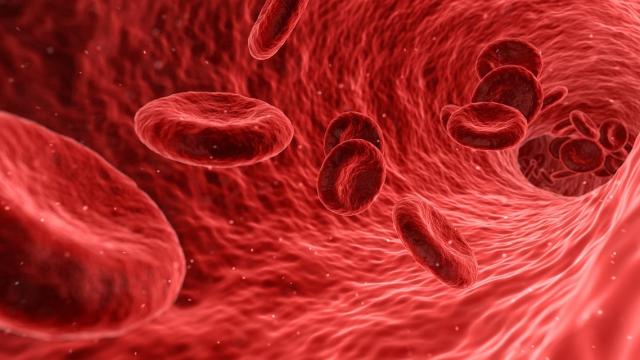The thing we’re most likely to not know when filling out a government form – our blood type – might mean the difference between life and death following a traumatic injury, a new study in Critical Care suggests.
Researchers in Tokyo looked over the medical records of over 900 patients who had visited one of two emergency critical care medical centres in Japan from 2013 to 2016. The patients had been admitted with severe trauma, defined as any injury that could permanently disable or kill someone.
Looking at blood type alone, they found that 28 per cent of people with blood type O died despite medical intervention, compared to 11 per cent of people with any other blood type.
“Recent studies suggest that blood type O could be a potential risk factor for hemorrhage,” said lead author Wataru Takayama, a doctor at the Tokyo Medical and Dental University Hospital, in a statement. “Loss of blood is the leading cause of death in patients with severe trauma but studies on the association between different blood types and the risk of trauma death have been scarce. We wanted to test the hypothesis that trauma survival is affected by differences in blood types.”
Blood types are a shorthand for describing the combination of antigens that constantly cover our red blood cells. There are actually 600 of these antigens known currently, though only around a quarter are commonly seen. These antigens, inherited from our parents, can be broken down into 35 broad blood groups, with the most relevant being the ABO group and the Rhesus group. And of the 61 antigens in the Rhesus group, the most essential is the D antigen (the presence or lack of a D antigen is what we know as having positive or negative type blood)
The study can’t explain why type O people were more likely to die, but people with that blood type are known to have lower levels of the proteins responsible for controlling bleeding, called clotting factors. One of these proteins, von Willebrand Factor (vWF), is especially important in preventing major bleeding.
“Therefore, a lower vWF level is a possible explanation for the increase in mortality in patients with blood type O, as observed in this study,” the authors wrote. “However, many of the differences in the mechanisms of hemostasis according to blood type remain unknown.”
Other blood types have their own issues, the authors noted. The surplus of clotting factors found in non-O types might mean you won’t bleed to death as easily, but it also increases the chance of developing unneeded clots that get stuck somewhere and cut off blood circulation, which can cause potentially fatal embolisms. And overall, according to a 2015 review, nearly 6 per cent of all deaths, including 9 per cent of deaths caused by cardiovascular disease, could be chalked up to simply not having type O blood.
In Japan, though, your blood type could even have deeper consequences, since many people in the country believe that blood type can predict personality traits. People there look to their blood types in order to gain insight into their innermost workings, figure out whether that special guy or gal is truly a compatible mate, and even apparently whether they should hire someone.
Because the study sample was entirely made of Japanese patients, the researchers hope that future studies can look at different populations. That could be important because countries tend to have different distributions of blood types. In the US, for instance, about 45 per cent of people have type O blood, compared to about 30 per cent in Japan.
